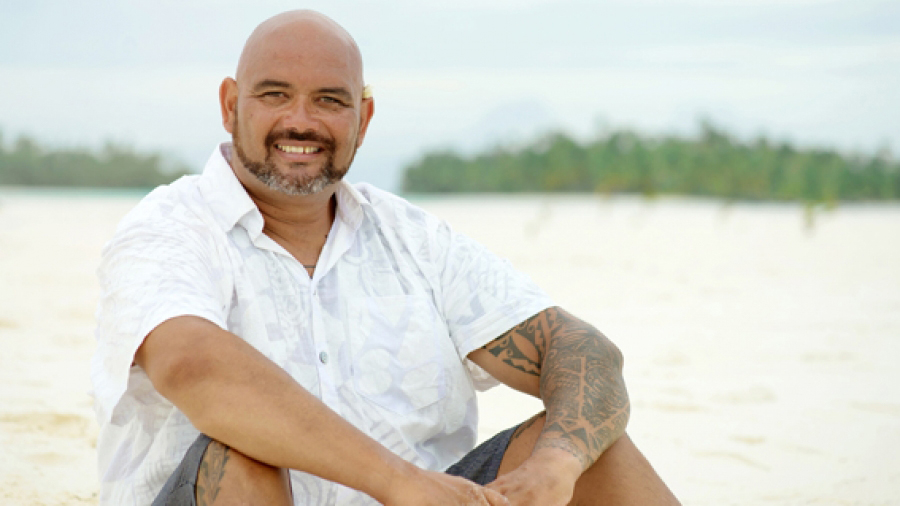Thomas Wynne: E toto, e kiko e ivi, the blood that runs in our veins, our heart, and in our bones
Saturday 2 September 2023 | Written by Thomas Tarurongo Wynne | Published in Editorials, Opinion

Columnist Thomas Tarurongo Wynne. Photo: CI NEWS/16040843
Shame, on you, those are the words I heard across the table, when I missed a conversation in Māori, that generally I can do ok in. Thomas Wynne writes.
Shame on you for not knowing how to speak Māori was the inference, and as I listened, I wondered to myself, who made you feel ashamed.
Because so often in life people place on us what was once placed on them and why it feels like someone just dumped something on you.
I have heard it a few times, and felt it more, the shame of not being fluent e tuatua Māori.
Of not being born in the Cook Islands, of not growing up in the Cook Islands, and yet I have held on to my identity because all those things, language, where we take our first breath and where we have our formative experiences as children, and as adults though meaningful, have never defined me and whether I am Māori enough for others, or whether I should feel shame.
Because let me assure you, all of those who meet these criteria, for those us who do not, we have felt shame, we have felt ashamed, and we have felt outsiders while within, different though the same and vulnerable to even try and open our mouths and speak the Māori we do know and have accumulated over time.
But we must never let this define us because who are as Maori is defined by one thing and one thing alone.
E toto, e kiko e ivi, the blood that runs in our veins, our heart, and our bones.
This same person went on to tell me there are three kinds of people in the Cook Islands.
Those that were born in the Cook Islands, and can speak Māori at the top, those that can speak Māori but not born in the Cook Islands in the middle, and at the bottom, those that were neither born in the Cook Islands nor cannot speak Māori.
This was not new, or something I hadn’t heard before, or felt from others and though some may say, this woman’s words were harsh and critical, her sentiment was not her own as many people think this also, even if they do not say it.
Shame is one of the first emotions felt in the Garden of Eden after God confronted Adam and Eve on their fateful decisions and shame is what the evil one throws at us, and what Jesus nailed to the cross by bearing our shame.
So, should shame be connected to our language or the loss of it, or where we were born or where we spent our formative years as children? I felt compassion for this person, because as they spoke, I knew that someone had made them feel shame, that they knew how deeply it cut, how demoralising it was and the emptiness it leaves people with, because we can only give from our own cup, what sits in that cup or who has filled it.
Strangely this person felt we should be defined by what we can or cannot do with our tongue, and yet it was the words that fell out of their mouth and not mine that defined them, more than maybe they realised.
So let me finish with this; I have felt shame and deservedly so, for poor decisions I made as a young man, as a husband, as a father, as a son and as a friend, and as a son of my creator.
I have known seasons of shame, times when I just needed to check myself and my attitudes and behavior, but with regards to being Māori in all that means, I have never felt more proud, more connected or more toketoke enua, then I do right now.














































